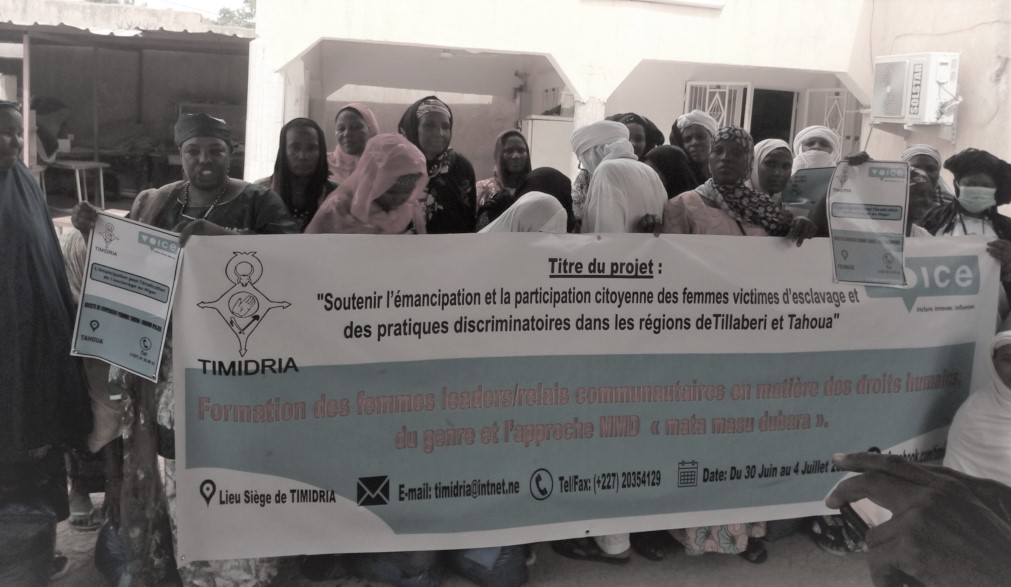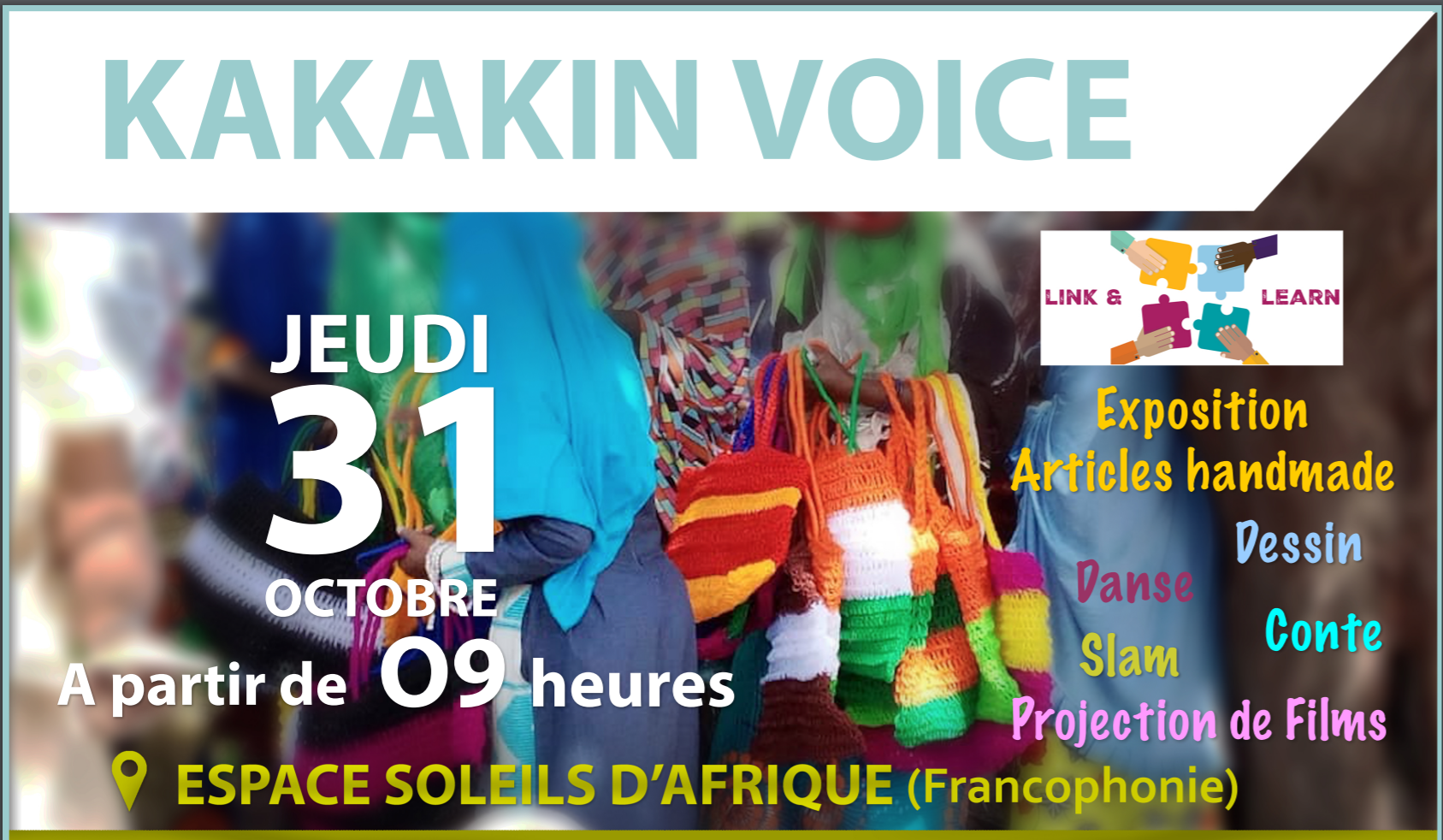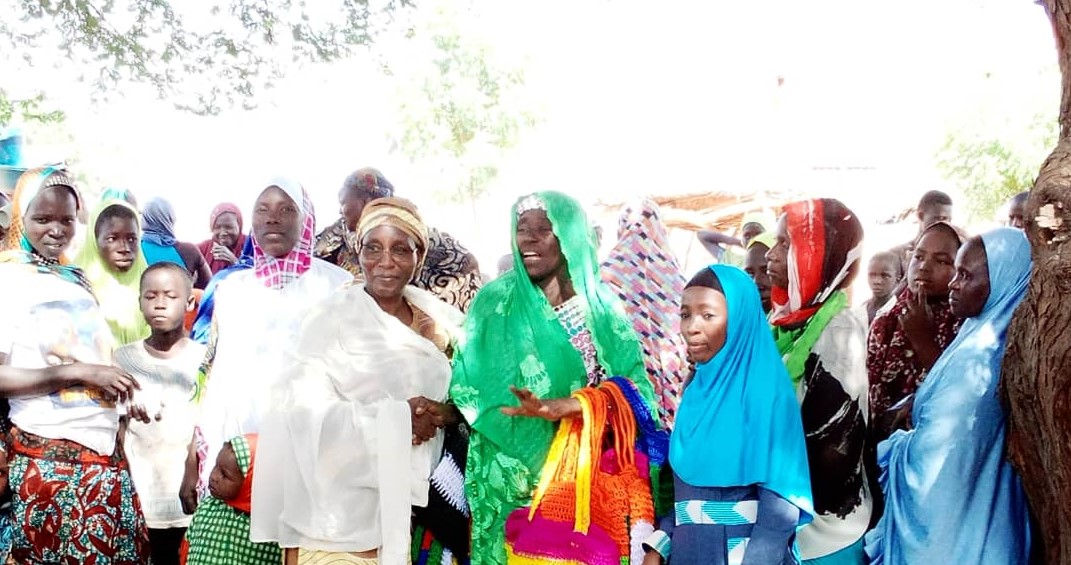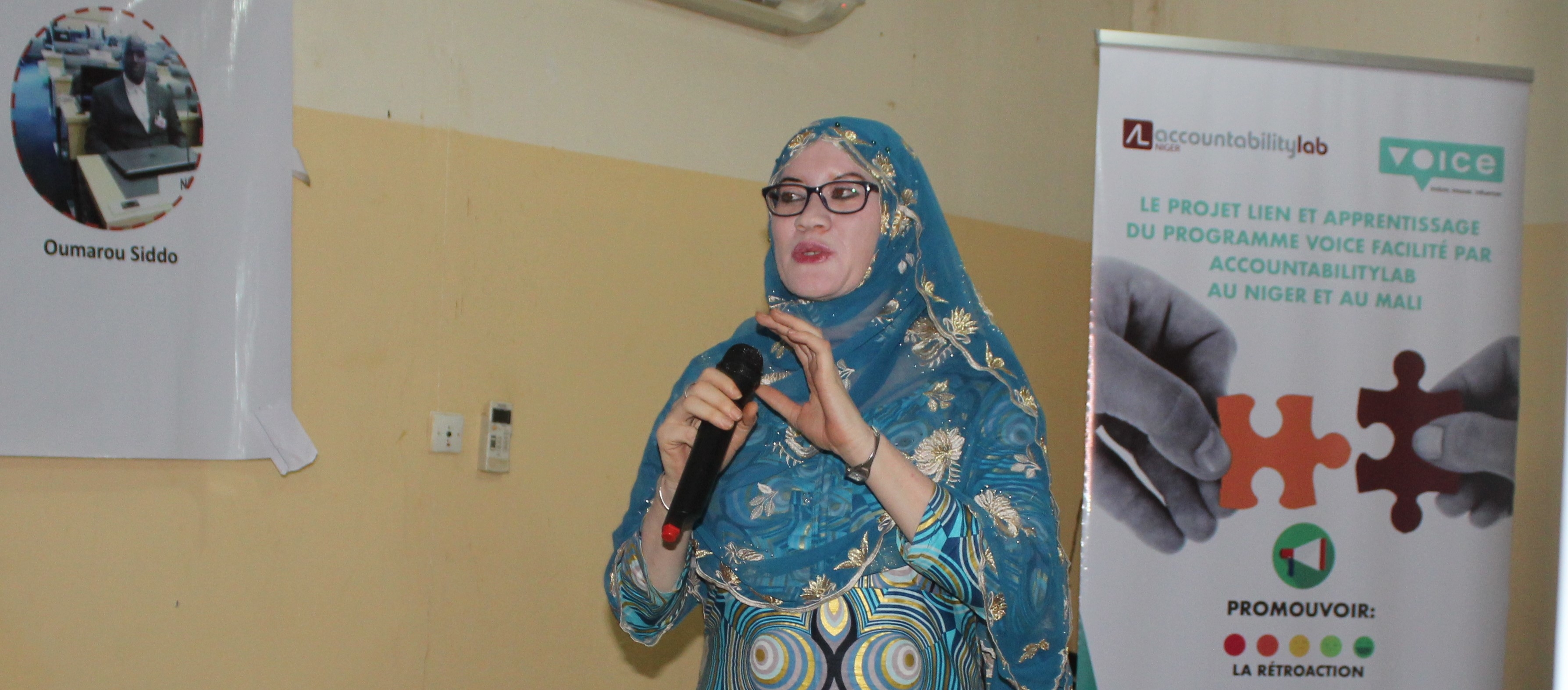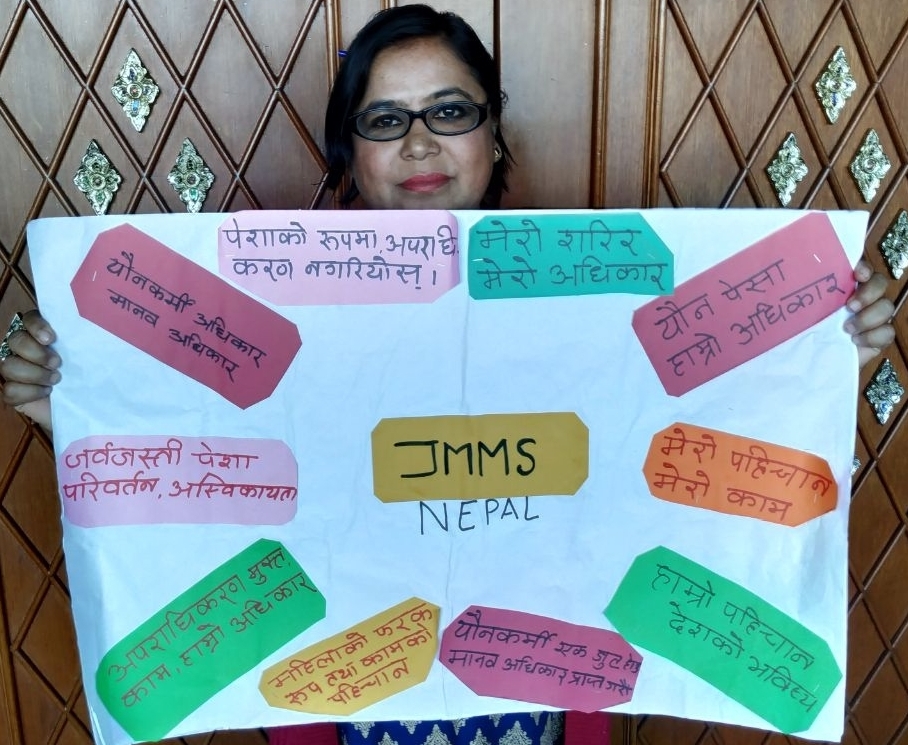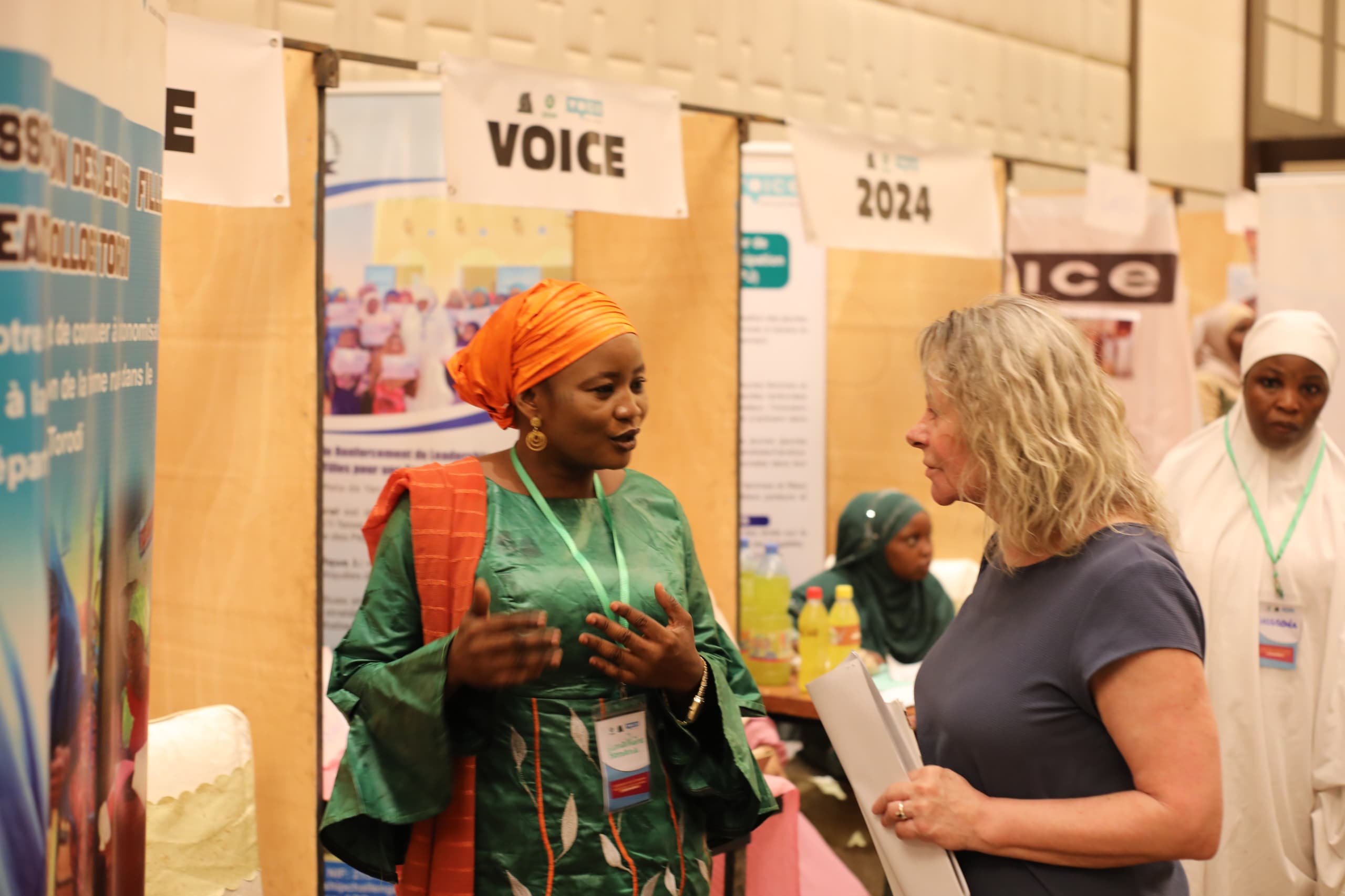16 Days of Activism in Niger: the fight against Wahaya or fifth wife!
Written by Ms Aïda Toye, Linking and Learning Assistant Voice, Oxfam in Niger and Fatiman Alher, M&E officer, Timidria
On Monday, December 10, 2018, International Human Rights day, Oxfam in Niger, with Voice influencing grantee Timidria, and its local human rights defenders -especially those for women’s rights, organised a day of activism in the village called Zanguon Abillo. Indeed, the choice of this village is not coincidental, because it is a place located in the centre of Niger where gender-based violence is rampant. However, Zanguon Abillo served a few years ago as a place of refuge for women who have experienced the greatest ordeal in their lives, not to say the denial of their lives under the pretext of a practice allegedly borrowed from Islam called wahaya or the 5th wife. Those women who managed to escape their ordeal, found themselves in this village -free to try as best as they can to enjoy their rights like any other Nigerien women, but especially to build a new life. It is for this reason that Timidria intervenes here as part of this project financed by Voice.
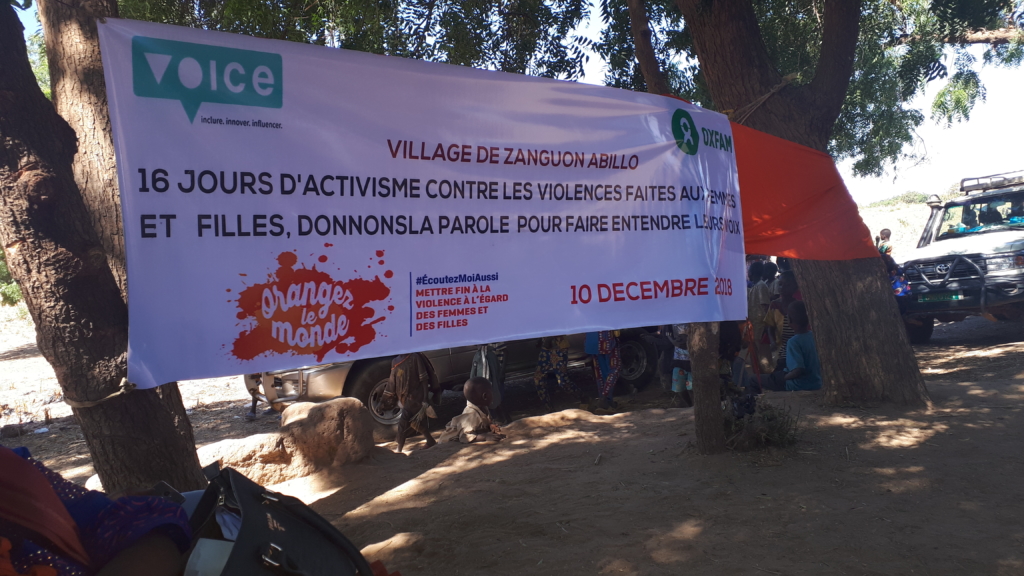
This day was an opportunity for Timidria and Oxfam in Niger to commemorate 16 days of activism for women and girls in this village, enhancing a climate for dialogue between activists, policymakers as well as the general public. As in previous years, the colour orange has been a key element in unifying all activities that have been instituted since 1991 as part of the global campaign on Violence Against Women. The theme chosen this year is “Orange the world: listen to me too”.
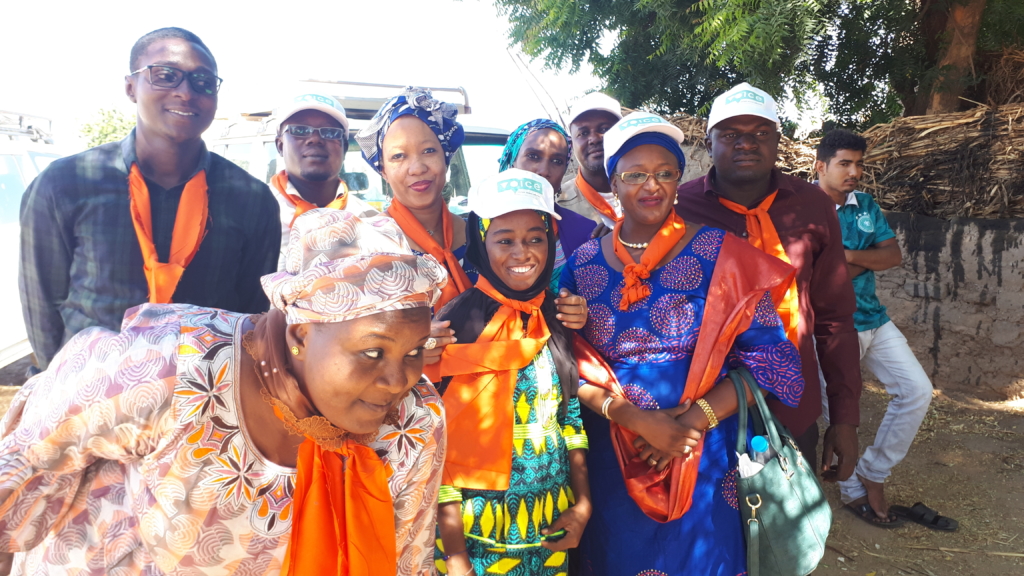
Because, despite international conventions, national laws and other policy instruments to promote gender equality and a Niger free of gender discrimination, it is clear that there is still a long way to go. Nigerien women, especially those in rural areas, are still subject to violent and inhumane practices in all their forms, including physical, psychological, sexual and other forms of violence.
It is with this knowledge that we made the trip to Zanguon Abillo to mark our commitment and engagement against violence against women and girls. This village which has a particular history for Timidria is currently mostly inhabited by women formerly known as “wahayou”. Women here are great examples of emancipation. Their experiences deserve to be shared so that other women who are in a similar situation emancipate and free themselves from the yoke of slavery, which is a horrible form of violence against women and girls.
We were able to listen to several testimonials from the survivors of this practice including that of Kadijatou Mani Koraou. In 2008, thanks to her determination and with the support of Timidria and several others, she won her legal case against the government of Niger. She has freed herself from the chains of slavery. “As soon as Timidria brought home the news of the abolition of slavery practices in our country, I did not turn a blind eye and with the help of this association and Almou Wandara, I engaged in the battle. Today, the result is there. I’m free. I live my life as I see fit.” Yet she has not forgotten the hell of her ordeal “This time is certainly over, but I can never forget it”.
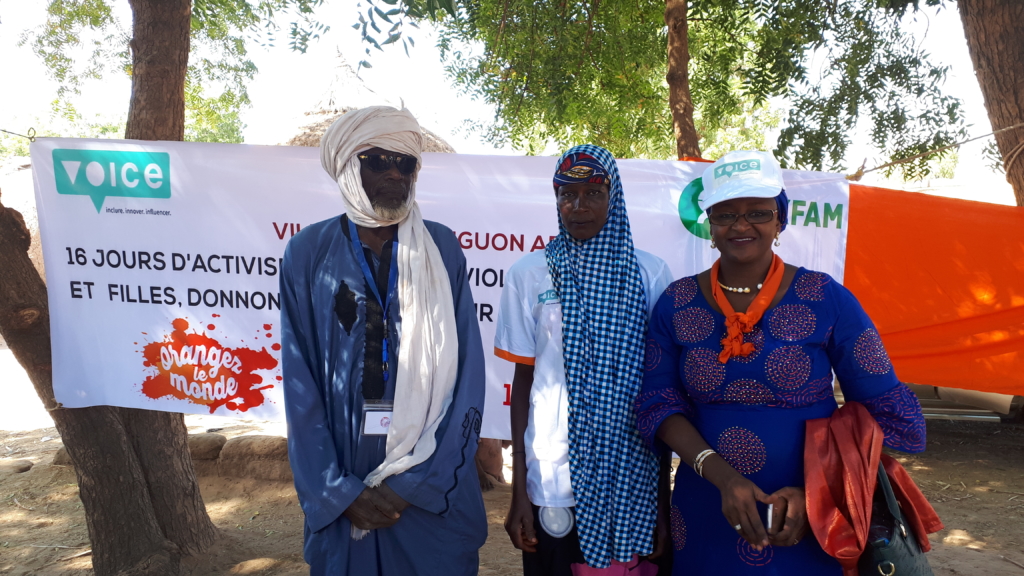 Kadijatou Mani Kouraou in the middle with the Voice Programme Officer for Niger on the right.
Kadijatou Mani Kouraou in the middle with the Voice Programme Officer for Niger on the right.
We also heard the story of Tannou: “I was sold at the age of 7 years. One morning, I was able to escape thanks to the support of a Tuareg who came to water his animals at a well where my master sent me every day to fetching water. This Tuareg sent me to the village of Zangon Abillo to settle. Here, I married and currently have two children. For my part, this practice is unforgettable because now I do not know my village or my ancestry. Besides, I do not even know if my parents are alive or not. ”
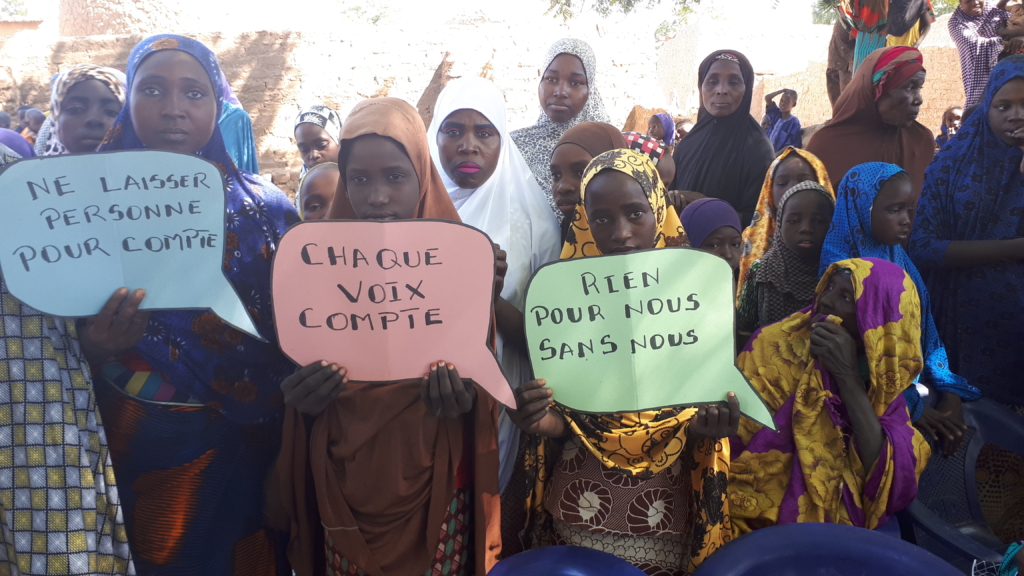 The young girls in the village expressing their dreams for a world where every voice counts.
The young girls in the village expressing their dreams for a world where every voice counts.It is worth noting that a document exists painting the life of the Wahaya woman produced by Timidria with its partner Antislavery International. The political will of Niger’s President in this area has resulted in strong measures and we thank the commitment and strong determination of the government to continue relentlessly against this phenomenon although at the same time it needs to be noted that stigma remains and a lot more needs to be done.
We pay a special tribute to the women who made their voices heard through a book of grievances which was presented to and signed by the administrative and local authorities present at the event.
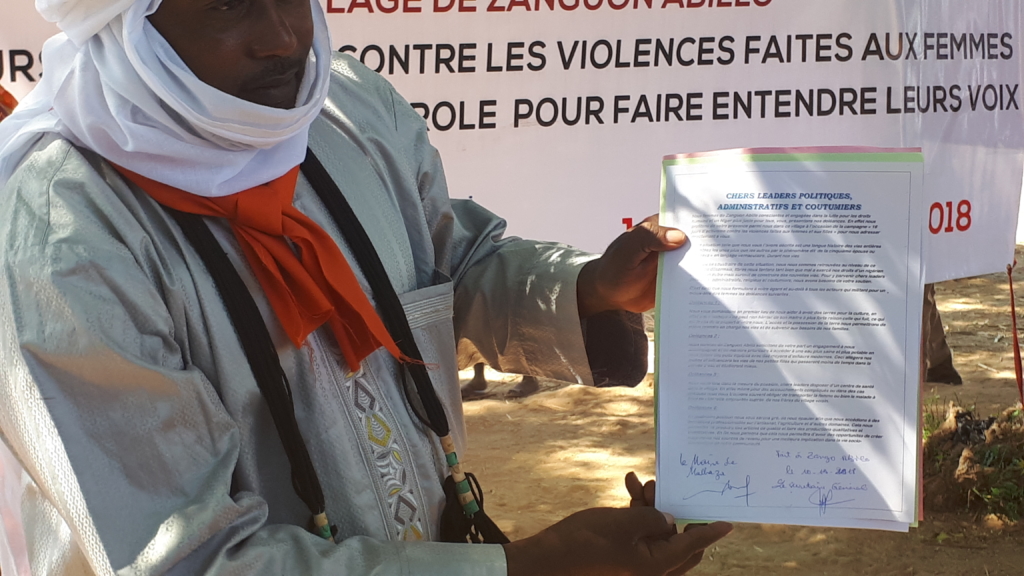 The book of grievances signed by the local authorities
The book of grievances signed by the local authorities

